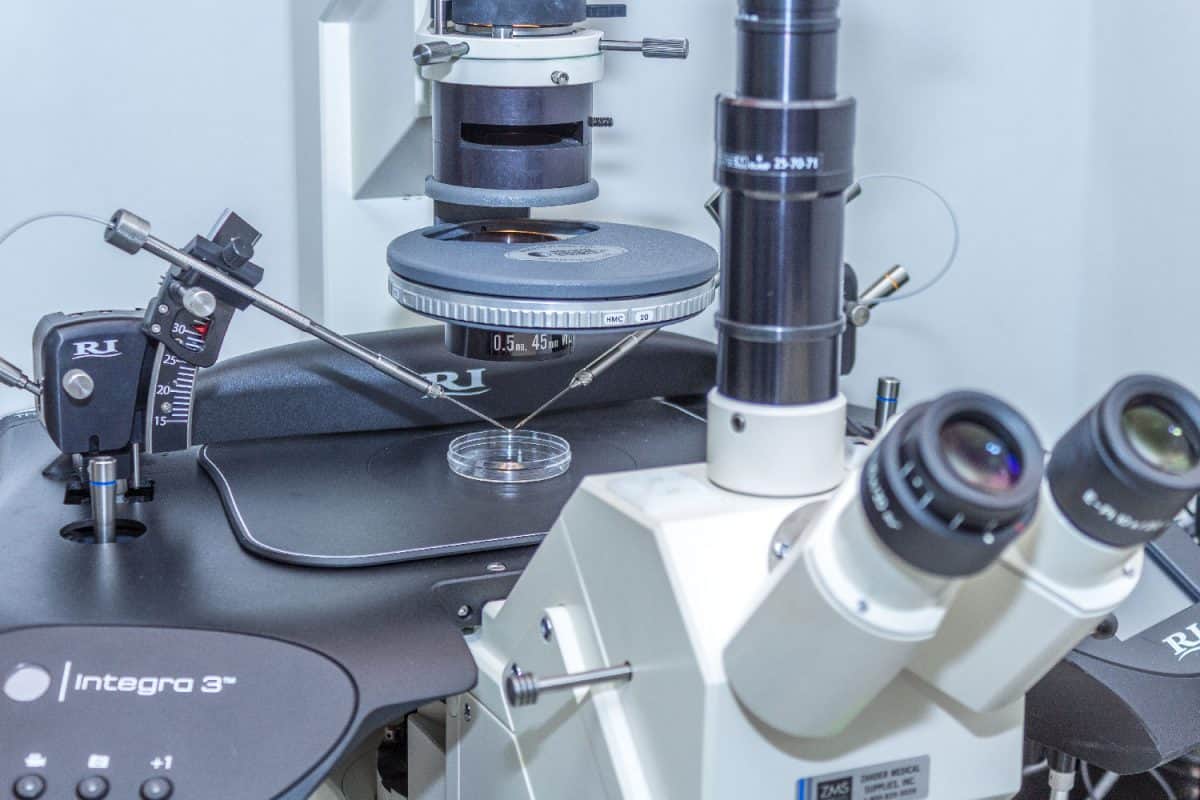[bt_section][bt_row][bt_column width=”3/4″][bt_hr top_spaced=”not-spaced” bottom_spaced=”bottomSemiSpaced” transparent_border=”noBorder” el_class=”” el_style=”” responsive=””][/bt_hr][bt_text]
Contents
PGD Q & A
by Sam Najmabadi, MD
What is the preimplantation genetic diagnosis process?
The preimplantation genetic diagnosis procedure begins with the normal IVF process. Once the embryo is divided, preimplantation genetic diagnosis is performed at the Beverly Hills office.
Preimplantation genetic diagnosis involves the following steps:
- A single cell is removed from the embryo
- The cell is treated with probes for genetic abnormalities
- The DNA is evaluated to determine if the inheritance of the gene is present
Once the preimplantation genetic diagnosis procedure is complete and embryos without the genetic problems being tested have been identified, “normal” embryos are transferred into the uterus.
Who is a candidate for preimplantation genetic diagnosis?
If you answer yes to any of the following questions, you may be a good candidate for preimplantation genetic diagnosis.
- Are you a woman age 35 or over?
- Are you a carrier of a sex-linked genetic disorder?
- Are you a carrier of single gene defects?
- Are you a carrier of chromosomal disorders?
- Have you had recurring pregnancy loss that is associated with chromosomal concerns?
- Have you had multiple IVF failures?
- Do you want to have the opportunity to have the embryos tested in advance for your peace of mind?
- Do you want to determine the sex of your baby in advance for family planning reasons or for medical reasons?
If these conditions apply to you and you are considering starting a family, contact us in Beverly Hills, or Sherman Oaks to discuss preimplantation genetic diagnosis with one of our board-certified fertility specialists.
What are the benefits of preimplantation genetic diagnosis?
There are several benefits of preimplantation genetic diagnosis. It reduces the need for amniocentesis later in pregnancy and helps reduce expenses that are usually associated with certain birth defects. Preimplantation genetic diagnosis is performed before embryo implantation, so if a defect is identified, the couple can decide whether or not they want to continue with the pregnancy. But perhaps best of all, preimplantation genetic diagnosis enables couples that carry genetic disorders to try for a biological child of their own.
Contact us for PGD
Preimplantation genetic diagnosis minimizes the risk of passing genetic defects on to future generations. If you or your partner has a genetic condition that you are afraid of transmitting to your child, preimplantation genetic diagnosis may be a good option for you.
[/bt_text][bt_hr top_spaced=”not-spaced” bottom_spaced=”bottomSemiSpaced” transparent_border=”noBorder” el_class=”” el_style=”” responsive=””][/bt_hr][/bt_column][bt_column width=”1/4″][bt_hr top_spaced=”topSpaced” bottom_spaced=”bottomSemiSpaced” transparent_border=”noBorder” el_class=”” el_style=”” responsive=””][/bt_hr][bt_header superheadline=”” headline=”SERVICES” headline_size=”small” dash=”bottom” dash_style=”btNormalDash” subheadline=”” el_class=”” el_style=””][/bt_header][bt_text]
- In Vitro Fertilization
- On Site IVF Laboratory & Surgical Facilities
- Low Tech Reproductive Treatments
- Fertility Work-Ups
- PGD
- Embryoscope
- Fertility Preservation
- Surrogacy
- Egg Donation
- Ovarian Rejuvenation PRP
[/bt_text][bt_text]
Free Skype Consultation
[/bt_text][/bt_column][/bt_row][/bt_section]

